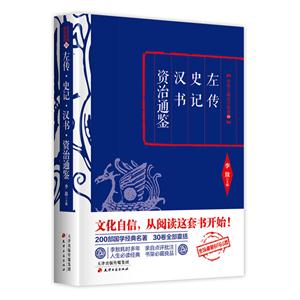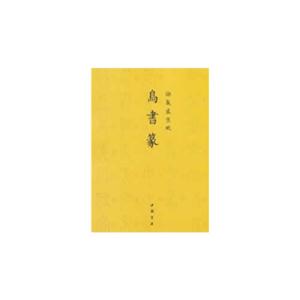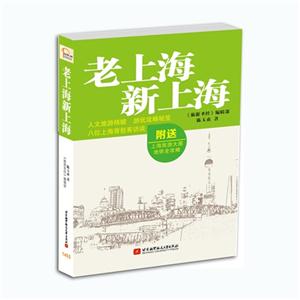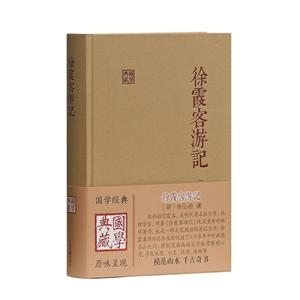中国历史地理全貌-(英汉双语版)
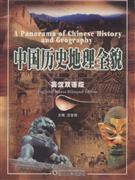
|
中国历史地理全貌-(英汉双语版)作者:汪慧强 开 本:其它 书号ISBN:9787561439456 定价:44.0 出版时间:2008-03-01 出版社:四川大学出版社 |
In the 3rd month of the 17th year (AD ]644) of the
Chongzhen period (AD ]628-AD ]644), the peasant army
under Li Zicheng captured Beijing and overthrew the Ming
dynasty.
Section 1 Rule of the Ming Period
Establishment of the Ming dynasty. In 1368 Zhu
Yuanzhang, a former Buddhist monk, overthrew the
Mongol Yuan dynasty, establishing the Ming dynasty. The
~i~ Ming ruled China until 1644, when the Qing dynasty took
the place of it.
Zhu Yuanzhang was known as Emperor Taizu. After
his death, his eldest grandson Zhu Yunwen inherited the
throne. The new emperor ordered the reduction of
mitary strength of all the feudal princes. This policy was
gly opposed by the royal .,memmbers. Later Zhu Di,
Prince Yan, rebelled, waged the Jingnan Campaign",
and captured Nanjing. He took over the kingship and
ed the imperial capital from Nanjing to Beijing
in 1421.
Selection of officials by the eight-part essay.
former regimes, the Ming dynasty took active
measures to strengthen the centralism. The Ming dynasty
continued to use the imperial civil examination system to
officials. The system of selecting officials by
nations further improved during this period. In
addtion to the Five Classics, the Four Books, including
Great Learning, The Doctrine of the Mean, The
ects of Confucius, and Mencius, were also included
ithe irnperial civil service examinations. A literary
composition prescribed for the examinations was known
for never changing its form and lack of ideas and consisted
eight fixed parts. So it was called the "eight-part
dssay.” Many examinees became really pedantic and
nothing about the outside world.
There were official examinations at three levels: the
provincia examination, the capital examination, and the
palace examination. Each county had its own school. A
graduate would receive a degree of Xiu Cai if he passed
required local examinations. A Xiu Cai could take the
provncial examitation held at the provincial capita]. The
r would be granted the title of Ju Ren. A Ju Ren had
right to take the metropolitan examination at the
' 's capital. If he passed it, he could go on to take
palace examination presided over in person by the
peror. If he did well, he would receive the Jin Shi
gree. Only then, would he be given an official post in
central or local goverrrnent. Throughout the Ming
dynasty, this was the main way to an official post.
Defense of the frontier. To ensure its control over
country, the Ming dynasty built a huge army. Soldiers
re stationed in the various military forts. Respective
mlitary officers were assigned to take charge of military
量,这一措施招致皇室成员的极
力反对。后来,燕王朱棣(1360-
1424年)谋反,发动“靖难之
役”,攻占南京,夺取王位,并
于1421年将都城由南京迁至
北京。
八股取士和以前的政权一
样,明朝积极采取措施加强中央
集权制。明朝继续沿用科举制度
选拔官吏,通过考试选拔官员的
制度进一步完善。除《五经》
外,考试内容还包括《四书》。
《四书》指《大学》《中庸》《论
语》和《孟子》。规定的应试作
文文体死板,个人见解贫乏,由
八个固定的部分组成,因而被称
为“八股文”。很多应试者书呆
子气十足,对身外的世界一无
所知。
官方考试分为三个级别:乡
试、会试和殿试。每个县都设有
自己的学校,通过当地规定考试
的毕业生获得秀才称号。秀才可
以参加在省城举行的乡试,中试
者为举人。举人有权参加在京城
举行的会试,如果通过会试,他
可以参加由皇帝亲自主持的殿
试。在殿试中取得佳绩者,将被
封为进士。只有这时,他才能在
中央或地方政府中任职。在整个
明朝时期,这是读书人获取一官
半职的主要途径。
戍边 为确保对国家的控
制,明朝建立了庞大的军队。士
兵在各军事要塞驻防,相关的武
地图/地理 地理
在线阅读
- 最新内容
- 相关内容
- 网友推荐
- 图文推荐
零零教育社区:论坛热帖子
| [高考] 2022 西安电子科技大学《软件工程》大作业答案 (2022-04-25) |
| [家长教育] 孩子为什么会和父母感情疏离? (2019-07-14) |
| [教师分享] 给远方姐姐的一封信 (2018-11-07) |
| [教师分享] 伸缩门 (2018-11-07) |
| [教师分享] 回家乡 (2018-11-07) |
| [教师分享] 是风味也是人间 (2018-11-07) |
| [教师分享] 一句格言的启示 (2018-11-07) |
| [教师分享] 无规矩不成方圆 (2018-11-07) |
| [教师分享] 第十届全国教育名家论坛有感(二) (2018-11-07) |
| [教师分享] 贪玩的小狗 (2018-11-07) |

